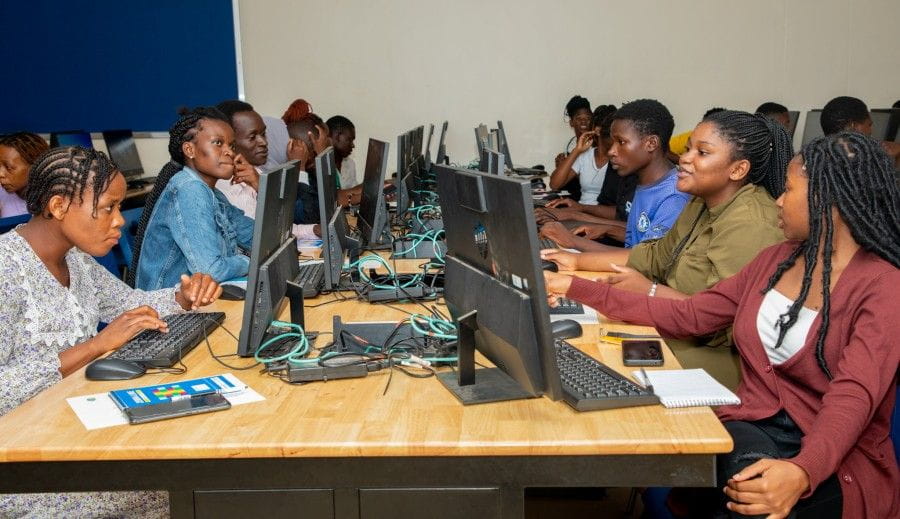Project Monitoring and Evaluation (PME)
2024-09-02


At the University of Malawi, students have the opportunity to participate in various training sessions that equip them with knowledge useful in their academic work, while also providing practical information before they complete their studies. Recently, from 13th to 21st March, 2024, 49 students studying media, communication and journalism at UNIMA participated in a data journalism training course organized by experts from within the institution. The objective of the training was to provide students with essential data analytics techniques crucial for crafting impactful data-driven stories.
The students were trained by Dr. Elias Mwakilama, an Associate Professor from the Department of Mathematics. He engaged the students on the use of Excel and RStudio software to organize, manipulate, and analyze raw data, enabling them to generate infographics or charts relevant for storytelling or media communication. Dr. Mwakilama further explained that his decision to offer this training was influenced by the experiences gained during the COVID-19 era, as many people across the world experienced panic and trauma due to misinformation and data falsification.
“Strengthening the existing media infrastructure with proper data reporting skills could help manage future pandemics amicably,” Dr. Mwakilama said. He emphasized that the lack of health data disclosure leads to ‘social media panic’ characterized by the widespread dissemination of false information, which undermines the efforts of health departments. However, Mwakilama noted that social media can be a valuable platform for addressing pandemics if used effectively. “One way to achieve this is by equipping journalists with data analytics skills. With these skills, journalists can interpret data and present them effectively to the general public, thereby enhancing access and creating opportunities for engagement and accountability.”
Dr. Mwakilama continued by stating that the training targeted students from UNIMA and the University of Eswatini, and it was planned to be conducted virtually. However, due to misaligned academic calendars between the two universities, it was decided to run blended sessions. Consequently, he stated that students are expected to engage with their counterparts from the University of Eswatini through the online learning platform.
The students expressed delight upon receiving their certificates after completing the training. Ms. Clara Shumba, currently in her fourth year enrolled in the Bachelor of Arts in Media for Development programme, conveyed her gratitude for the highly educational training and the valuable skills she acquired.
“Through the data journalism training, I have acquired numerous skills, including data analysis, primarily focusing on analyzing data sets to extract meaningful insights and trends, as well as storytelling skills using RStudio and data visualization techniques, particularly on how to present data using visuals such as graphs,” she said. “I believe that these skills will greatly benefit me when I enter the industry, enabling me to become an exceptional communicator capable of analyzing data, creating visually engaging presentations, and crafting reports to effectively communicate complex information. In my academic pursuits, the knowledge I have gained in using Excel will assist me in my research studies to analyze my findings and present them visually.”
Dr. Mwakilama expressed satisfaction with the students’ performance and turnout during the training. He was impressed by how the students easily grasped the content, despite not pursuing science programmes. Furthermore, he extended his gratitude to the students who participated in the training and to the Head of the Department of Media and Communication, Dr. Anthony Gunde, for organizing the workshop.
.